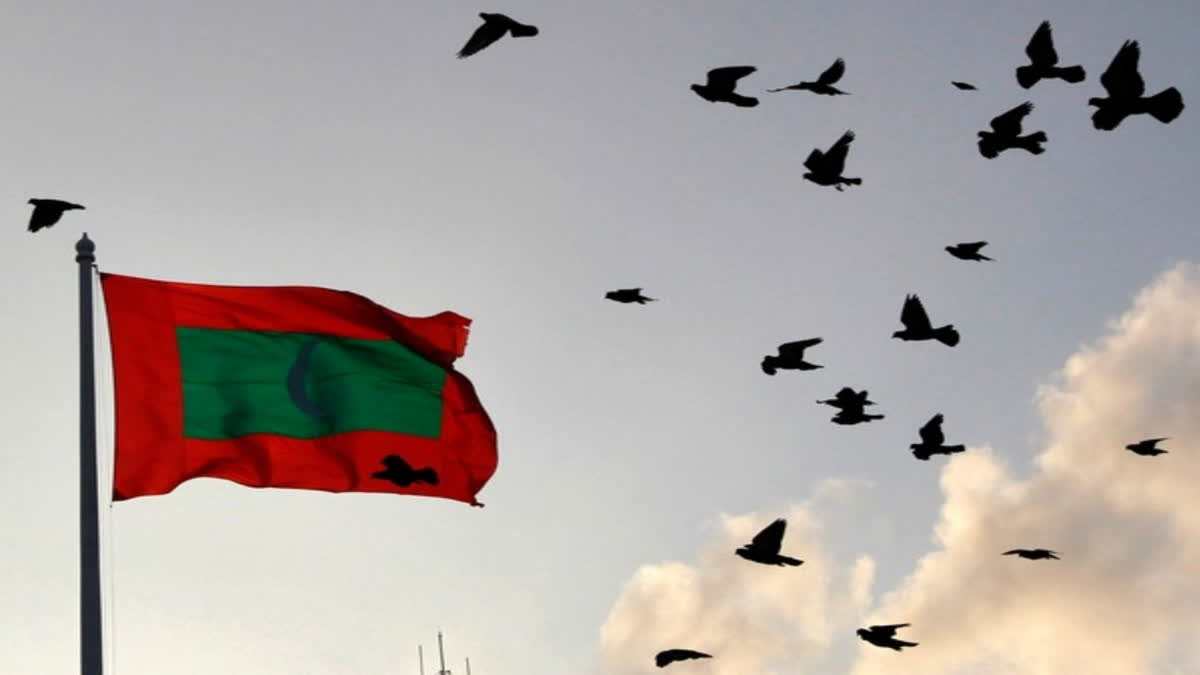New Delhi: Amidst strained relations between India and the Maldives, a group representing Maldivian fishermen has claimed that a fishing boat of the Indian archipelago nation has been stormed by personnel of an Indian ship.
“The UN Mahibadu Asruma3 boat is currently being attacked by an Indian ship. I strongly condemn this! Watch this,” the translated version of the post on X in Dwivehi by the Bodu Kanneli Masveringe Union reads.
Following this, the Maldives National Defence Forces (MNDF) posted on X that it is “investigating a report that a boarding team of a foreign military vessel boarded a Dhvehi fishing boat while in the SEZ”. “A MN Coast Guard vessel is now traveling to the area,” it stated. Local media in the Maldives quoted the MNDF as saying that “the fishing boat was inside the Maldives Exclusive Economic Zone (EEZ) when a boarding team from a foreign military ship stormed the boat”.
An EEZ, as prescribed by the 1982 United Nations Convention on the Law of the Sea (UNCLOS), is an area of the sea in which a sovereign state has exclusive rights regarding the exploration and use of marine resources, including energy production from water and wind. The EEZ does not define the ownership of any maritime features (islands, rocks and low-tide elevations) within it.
Now the question is whether the Maldivian fishing boat was actually within the country’s EEZ. The International Tribunal for the Law of the Sea (ITLOS) last year ruled that the Maldives will lose 45,331 sq km of its EEZ in a maritime boundary delimitation case involving Mauritius. The judgment evenly divides the disputed maritime zone, awarding Mauritius 45,331 sq km and the Maldives 47,232 sq km. Previously, the entire area of 92,653 sq km was considered part of the Maldivian EEZ, as per local legislation defining the EEZ as 200 nautical miles from the coast.
This report of the Maldivian fishing boat being boarded by personnel of a foreign vessel comes amidst new Maldives President Mohamed Muizzu taking a strident anti-India and pro-China foreign policy
Muizzu had won last year’s presidential election on a pronounced anti-India plank. He ran an ‘India Out’ campaign in which he called for the withdrawal of some Indian military personnel present in his country. These personnel, numbering less than 100, are primarily involved in humanitarian assistance and disaster relief work in the Indian Ocean archipelago nation. However, after assuming office, Muizzu made a formal request to India to withdraw these personnel.
As part of New Delhi’s Neighbourhood First Policy, the Maldives is strategically significant to India because of its location in the Indian Ocean. India and the Maldives share ethnic, linguistic, cultural, religious and commercial links steeped in antiquity and enjoy close, cordial and multi-dimensional relations. However, regime instability in the Maldives since 2008 has posed significant challenges to the India-Maldives relationship, particularly in the political and strategic spheres.
Although India continues to be an important partner of the Maldives, New Delhi cannot afford to be complacent over its position and must remain attentive to the developments in the Maldives. India must play a key role within the Indo-Pacific security space to ensure regional security in South Asia and surrounding maritime boundaries. China’s strategic footprint in India’s neighbourhood has increased. The Maldives has emerged as an important ‘pearl’ in China’s ‘String of Pearls’ construct in South Asia.
On January 30, the issue of security in the Indian Ocean came up for discussion during a meeting between Muizzu and US Assistant Secretary of State for South and Central Asian Affairs Donald Lu in Male. The latest report of the Maldivian fishing boat being accosted by personnel of a foreign naval vessel, as stated by the MDNF, has to be seen in that context.
Read More



